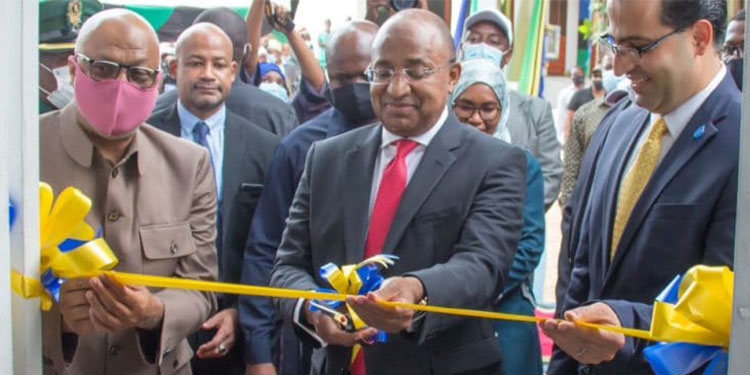
The ribbon-cutting ceremony for the new desalination plant was presided over by Hussein Mwinyi, the president of Zanzibar, a semi-autonomous archipelago in the Indian Ocean off the coast of Tanzania. The water desalination is situated at Mnazi Moja Hospital in Unguja, the archipelago’s largest island.
A solar photovoltaic system powers the plant, which has a daily capacity of 100 m3, ensuring the installation’s energy independence. This idea was developed through cooperation between the German firm Boreal Light and the Nairobi, Kenya-based WaterKiosk Africa. Mnazi Moja, Zanzibar’s largest hospital with 776 beds, is leading the effort to contain the Covid-19 outbreak.
One of Boreal Light’s backers, GreenTec Capital, claims that the newly operational plant is also fitted with a wastewater treatment system “to ensure that no contaminants are emitted.” A project to outfit the Zanzibar archipelago with drinking water production facilities that are entirely powered by renewable energy includes the construction of the new drinking water production and wastewater treatment plant. The Berlin-based start-up is driving the initiative.
Due to its island status, the archipelago must rely on independent, decentralised water delivery systems that are powered by less expensive forms of energy. And this benefit is provided by solar energy. The German Development Agency’s subsidiary, the Deutsche Investitions- und Entwicklungsgesellschaft (DEG), is funding this initiative on behalf of the German government (KfW)
Tanzania’s second desalination project is now being worked on by the young organization, which is managed by Hamed Beheshti. A few weeks ago, the first plant began operating in Kibaha, a town close to the coastal city of Dar es Salaam. The facility can also produce 100 m3.
